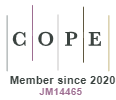Algorithms, filter bubble and social media: challenges for elections in the information age
DOI:
https://doi.org/10.5585/rtj.v10i1.18159Keywords:
elections, filter bubble, information societyAbstract
The constant use of social media by voters results in interferences in the electoral process through algorithms, which creates a filter bubble. This bubble causes news to be bypassed by algorithms rather than reaching voters in a neutral manner, what leads to only news that are in line with the users' predilection being exposed to them. Through the hypothetico-deductive method, in conjunction with a qualitative and a bibliographic research, it was concluded that the algorithms and the filter bubble harms freedom of information as an inherent right in the dissemination of diverse and diffuse information to all involved in the course of elections. In addition, a specific legislation, such as that intended by the Bill 4120/2020 on the subject, turns up to be necessary.
Downloads
References
BIONI, Bruno Ricardo. Proteção de Dados Pessoais: a função e os limites do consentimento. Rio de Janeiro: Forense, 2019.
BRASIL. Constituição (1988). Constituição da República Federativa do Brasil de 1988. Disponível em:http://www.planalto.gov.br/ccivil_03/constituicao/constituicao.htm. Acesso em: 11 de agosto de 2020.
BRASIL. DATASENADO. . Redes Sociais, Notícias Falsas e Privacidade de Dados na Internet. Brasília: Congresso Nacional, 2019. Disponível em: https://www12.senado.leg.br/institucional/datasenado/arquivos/mais-de-80-dos-brasileiros-acreditam-que-redes-sociais-influenciam-muito-a-opiniao-das-pessoas. Acesso em: 11 ago. 2020.
BRASIL. Lei nº 9.504, de 30 de setembro de 1997. Estabelece normas para as eleições.. . Brasília, 30 set. 1997. Disponível em: http://www.planalto.gov.br/ccivil_03/leis/l9504.htm#:~:text=LEI%20N%C2%BA%209.504%2C%20DE%2030%20DE%20SETEMBRO%20DE%201997.&text=Estabelece%20normas%20para%20as%20elei%C3%A7%C3%B5es. Acesso em: 11 ago. 2020.
BRASIL. Lei n. 13.709, de 14 de agosto de 2018. Lei Geral de Proteção de Dados Pessoais (LGPD). Diário Oficial da União. Disponível em: http://www.planalto.gov.br/ccivil_03/_ato2015-2018/2018/lei/L13709.htm. Acesso em: 11 de ago. de 2020.
BRASÍLIA. Câmara dos deputados. Projeto de Lei PL 4120/2020. Disciplina o uso de algoritmos pelas plataformas digitais na internet, assegurando transparência no uso das ferramentas computacionais que possam induzir a tomada de decisão ou atuar sobre as preferências dos usuários. Disponível em: https://www.camara.leg.br/propostas-legislativas/2259721. Acesso em 13 ago. 2020. Texto original.
CASTELLS, Manuel. A galáxia da internet: reflexões sobre a internet, os negócios e a sociedade. 1. ed. Rio de Janeiro: Zahar, 2003.
CERVI, Emerson. Opinião pública e comportamento eleitoral. Curitiba: Ibpex, 2010.
DICTIONARY, Cambridge. Fake News. Inglaterra: Cambridge Dictionary, 2020. Disponível em: https://dictionary.cambridge.org/pt/dicionario/ingles/fake-news. Acesso em: 11 ago. 2020
ENTENDA o escândalo de uso político de dados que derrubou valor do Facebook e o colocou na mira de autoridades. G1, 20 de março de 2018. Disponível em: https://g1.globo.com/economia/tecnologia/noticia/entenda-o-escandalo-de-uso-politico-de-dados-que-derrubou-valor-do-facebook-e-o-colocou-na-mira-de-autoridades.ghtml. Acesso em 11 de ago. 2020
FEIGELSON, Bruno; SIQUEIRA, Antonio Henrique Albani. Comentários à lei geral de proteção de dados. 2019: Thomson Reuters, 2019.
FORNASIER, Mateus de Oliveira. Democracia e Tecnologias de Informação e Comunicação: mídias sociais, bots, blockchain e inteligência artificial na opinião pública e na decisão política. Rio de Janeiro: Lumen Juris, 2020. 196 p.
FOUCAULT, Michel. Vigiar e Punir: História das Violência nas Prisões. Petrópolis: Vozes, 2004.
HOW an ex-YouTube insider investigated its secret algorithm. The Guardian, 02 de fevereiro de 2020. Disponível em: https://www.theguardian.com/technology/2018/feb/02/youtube-algorithm-election-clinton-trump-guillaume-chaslot. Acesso em 11 de agosto de 2020
IMPRENSA, Associação Brasileira de. Código de Ética dos Jornalistas Brasileiros. Disponível em: http://www.abi.org.br/institucional/legislacao/codigo-de-etica-dos-jornalistas-brasileiros/. Acesso em: 11 ago. 2020.
INSTITUTE, Oxford Internet. Junk News During the EU Parliamentary Elections: Lessons from a Seven-Language Study of Twitter and Facebook. 2019. Disponível em: https://comprop.oii.ox.ac.uk/wp-content/uploads/sites/93/2019/05/EU-Data-Memo.pdf. Acesso em: 11 ago. 2020
KARVALICS, Laszlo Z.. Information Society Dimensions. 2009. Disponível em: https://www.academia.edu/652113/Information_Society_Dimensions. Acesso em: 11 ago. 2020.
KARVALICS, Laszlo Z.. Information Society - what is it exactly? (The meaning, history and conceptual framework of an expression). 2006. Disponível em: https://www.researchgate.net/publication/237332035_Information_Society_-_what_is_it_exactly_The_meaning_history_and_conceptual_framework_of_an_expression. Acesso em: 11 ago. 2020.
MAGRANI, Eduardo. DEMOCRACIA CONECTADA: A Internet como Ferramenta de Engajamento Político-Democrático. 2014. 224 f. Tese (Doutorado) - Curso de Direito, Fgv Direito Rio, Curitiba, 2014. Disponível em: https://bibliotecadigital.fgv.br/dspace/handle/10438/14106. Acesso em: 11 ago. 2020.
MUNDIM, Pedro Santos. Cientistas Políticos, Comunicólogos e o Papel da Mídianas Teorias da Decisão do Voto. 2010. Disponível em: https://www.researchgate.net/publication/235891679_Cientistas_Politicos_Comunicologos_e_o_Papel_da_Midianas_Teorias_da_Decisao_do_Voto. Acesso em: 11 ago. 2020.
ORWELL, George. 1984. São Paulo: Schwarcz S.A, 2019.
PARISER, Eli. O filtro invisível: o que a internet está escondendo de você. Rio de Janeiro: Zahar, 2011.
PASQUALE, Frank. The black box society : the secret algorithms that control money and information. Cambridge, Massachusetts: Harvard University Press, 2015.
PORTO JUNIOR, Odélio. O Uso de Bots nas Eleições Brasileiras. 2018. Disponível em: https://irisbh.com.br/o-uso-de-bots-nas-eleicoes-brasileiras/. Acesso em: 11 ago. 2020.
VAIDHYANATHAN, Siva. ANTISOCIAL MEDIA: how facebook disconnects us and undermines democracy. Nova York: Oxford University Press, 2018.
VALENTINI, Rômulo Soares. Julgamento por computadores?: as novas possibilidades da juscibernética no século XXI e suas implicações para o futuro do Direito e do trabalho dos juristas. 2017. 152 f. Tese (Doutorado) - Curso de Direito, Universidade Federal de Minas Gerais, Belo Horizonte, 2017.
Disponível em: https://repositorio.ufmg.br/bitstream/1843/BUOS-B5DPSA/1/vers_o_completa_tese_romulo_soares_valentini.pdf. Acesso em: 11 ago. 2020.
XV ENANCIB, 2014, Belo Horizonte. ALÉM DAS NUVENS: EXPANDINDO AS FRONTEIRAS DA CIÊNCIA DA INFORMAÇÃO. Belo Horizonte: Ufmg, 2014. Disponível em: https://ridi.ibict.br/bitstream/123456789/819/1/GT5AnaisXV.pdf. Acesso em: 11 ago. 2020.
Downloads
Published
How to Cite
Issue
Section
License
Copyright (c) 2021 Revista Thesis Juris

This work is licensed under a Creative Commons Attribution-NonCommercial-ShareAlike 4.0 International License.
10.5753/reic.2025.5402
- Abstract 3022
- PDF (Português (Brasil)) 1408






